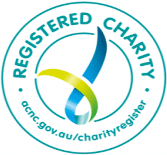When responding to someone’s involvement in white supremacy or far-right extremism, early intervention is optimal. Radicalisation is a cumulative process that occurs over time. It does not occur after an isolated incident and most people do not radicalise on their own.
Providing support and alternative messages to a person at risk can make a difference. Many former white supremacists say that a perceived lack of caring by anyone in their communities contributed to their involvement in a white supremacy group and subsequent radicalisation. Most say that having a trusted adult to talk to would have made a big difference, so identifying sources of social support, other than that of a white supremacy group, is crucial.
Once an individual has become entrenched in white supremacy and adopted violent extremist views it can be very difficult to engage them in discussion, let alone intervene to try change their worldview and beliefs. However, it is possible, and for these individuals the need for support and understanding from others is perhaps even greater.
Using the right communication style
When talking to someone about their involvement in white supremacy it is essential that you remain non-judgmental and maintain open communication. Being curious and interested in their views will let the person know you are there for them, and will allow you to identify and understand the triggers and drivers that have led to them getting involved. It is also important to distinguish between the person and the behaviour, as this will allow you to let the person know they are valued even if their behaviour is not.
Simply telling the person that what they are doing is wrong is likely to drive them further into white supremacy and radicalisation. White supremacy groups provide strong messages and conspiracy theories to their members that the rest of society is against them. Any perceived bias against white supremacy is likely to be interpreted as a threat coming from the enemy, reinforcing involvement in the group.
A useful theoretical model to use when talking to someone who is at risk of involvement in white supremacy or far-right extremism is motivational interviewing. Motivational interviewing is an approach which allows you to avoid finding yourself in an oppositional role to the person you are engaging with. It allows the person to explore different choices and views him/herself. Motivational interviewing allows the individual to engage in critical thinking and gain increased awareness. It allows you to do all this without directly challenging or confronting the person you are engaging with.
It is helpful to remember that you as a parent, friend, social worker, teacher etc. are NOT responsible for the individual to change. You are there to help them start that process themselves and to plant a seed of doubt. Your role is to help them to start critically analyse their own views and positions.
When it comes to motivational interviewing the best thing you can do is create a nurturing environment and make the person feel comfortable. It’s essentially about making yourself available. Create the space to allow them expression and in that space you may find the individual voluntarily bringing up their own doubts and questions in relation to their views/positions. When this happens this is your chance to truly engage with them in a way that leads to the person identifying further reasons, arguments or doubts in relation to their position.
By actively listening, using open ended questions, mirroring and summarizing and offering but not inputting information the person is prompted to seek and hopefully find their own motivation to critically engage with their (entrenched) viewpoints. It is important to encourage people to find solutions and alternatives to their views, attitudes and behaviours based on their own frames of reference and motivations.
Providing alternative social narratives
Finding common ground with a person at risk is a great starting point. Research shows that taking the conversation away from far-right politics or white supremacist ideas and narratives can help. Simply talking about ‘other stuff’ can help, and can help the person realise that not everything is about the far-right or white supremacy in this world.
It’s important to encourage people at risk of involvement in far-right groups to explore other interests that can form a positive foundation for their social and personal identity. Starting small is key. For example you may both have a shared interest in e.g. football, horror movies or heavy metal music. Such common interests are a great entry point for starting a conversation.
Later on you may be able to encourage people to join clubs or organisations where they can pursue these interests (e.g. join a soccer club, take marital arts classes). Pursuing other interests can lead to the person-at-risk having positive interactions with people who do not subscribe to far-right views and can have a substantial effect.
Strengthen social networks
For many individuals, the feelings of isolation and alienation from society are a key factor in determining involvement in a white supremacy group. Individuals with strong social networks are likely to have more resilience, and be less susceptible to joining, remaining in or returning to a white supremacy group. Strong social networks assist a person to feel connected with society and less isolated. They provide the individual with alternative narratives to white supremacy doctrine, and they support an individual to follow their interests and meet other like-minded people.
Social networks can be strengthened in a number of ways, including:
- Assisting an individual to engage in education, training or employment.
- Supporting them to get them involved in social activities with new peers, for example, at a local sporting club.
- Connecting them with a positive role model/mentor who can encourage and support them to explore new interests.
- Linking the individual in with support services such as a youth service or a trained counsellor who can assist with issues such as social anxiety and adjusting to participating in society.
- Supporting a person to become involved in community actions that promote political and social change through legal and non-violent action.
Referring to professional health services / Contacting the police
Many individuals will need to access professional health care and in some cases mental health services, and it is extremely hard for a person to make a new life outside of white supremacy if they are in physical or mental pain. Both community workers and family can help enormously with this, for example by locating local services to refer the person to, making and taking them to appointments, or checking that they kept appointments.
There may be times where an individual indicates that they or someone else is going to carry out violence or other illegal actions. Although instances of such violent extremism are rare in Australia, if this occurs then the most appropriate response is to contact the Police. Call 000 or contact your local police.
The challenges of leaving a white supremacy group
It can be extremely difficult to leave a white supremacy group, particularly if the individual is deeply involved. The member often needs to prove to the group why they should be given permission to leave. These reasons might include that they have been involved for several years and have ‘done their time’ in the group, or they are leaving to ‘better’ themselves and therefore help improve the ‘white race’. If the individual does not receive permission to leave the group, they run a serious risk of recrimination and punishment for leaving.
In other countries such as Sweden and Germany there are support organisations that were established to help people wanting to leave white supremacy groups. However, without the existence of such specialised programs in Australia, individuals will predominantly need to call on their family and local social networks for support.
When leaving a white supremacy group there can be significant losses for the individual, including a loss of social network, a loss of identity, and a loss of an identified enemy. Individuals can experience a crisis as they try to reintegrate into a society they have shunned and form new social networks. Reasons people leave white supremacist or far-right extremist groups can include:
- Disillusionment that the group isn’t everything it presents itself to be. Over time it becomes evident that the group is not the close knit ‘family’ it first appears to be. There is often infighting within the groups, and violence between different groups.
- Disillusionment that there is a gap between espoused group values and actual lived values within the group, for example, although abstinence from drug and alcohol use is promoted as a value, this is not practiced by group members.
- Becoming tired of living a life of hate and anger. Former white supremacists report that within the groups there is limited scope for happiness. Maintaining hatred and anger is essential for surviving in a society where the white supremacist is in the minority and against so many perceived enemies. This can become exhausting.
- A change in life circumstances and the inability to continue with the high level of commitment to the group, for example, starting a new job or having children can limit an individual’s ability to devote time to the group. Often it is as simple as moving interstate for school, university or work that makes the break, or starting to date someone outside the movement that acts as an opportunity for the person to ‘drift out’. Even limited time away from the group (such as a holiday with family) can give a person time to reflect on their experiences and get back in touch with their personal identity and values.
Please contact us if you would like more information or if you have specific concerns. We may be able to help you.
Is there any more I can do?
- Become a Supporter – Your gift will help All Together Now increase our capacity to create social marketing campaigns that promote the prevention of racism. All donations are used to create, develop, distribute and promote our racism prevention campaigns across Australia. We are the only national not-for-profit organisation in Australia dedicated solely to promoting the prevention of racism
- Participate in our training Program – If you qualify, you may be able to participate in one of our CAPE training programs, which are tailored to enhance the capacities of frontline workers to respond to young people who may be at risk of engaging with far-right extremism. Contact us if you would like more information generally about these training programs. If you would like to apply to participate in one of the next CAPE training programs, please click the flyer below for more information.


